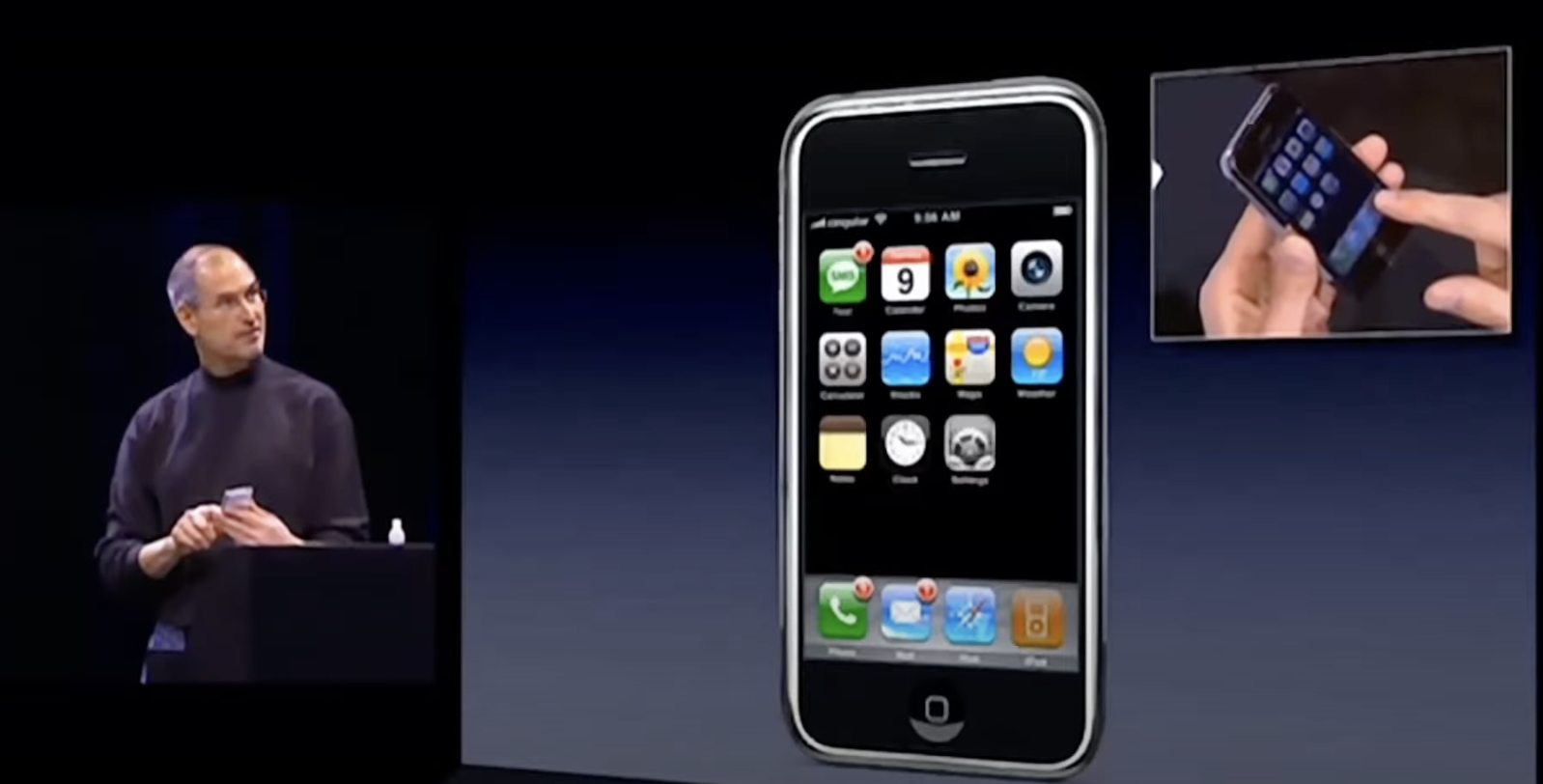NGP Capital’s second fund produced six unicorns and top quartile returns while navigating significant change at Nokia, its corporate partner. Managing partner Paul Asel shares 6 insights others can take from the experience.
“The search for innovation needs to be organizationally separate and outside of the ongoing managerial business. Innovative organizations realize that one cannot simultaneously create the new and take care of what one already has. They realize that maintenance of the present business is far too big a task for the people in it to have much time for creating the new, the different business for tomorrow. They also realize that taking care of tomorrow is far too big and difficult a task to be diluted with concern for today. Both tasks have to be done. But they are different. Innovative organizations, therefore, put the new into separate organizational components concerned with the creation of the new.”
Peter Drucker, Management: Tasks, Responsibilities, Practices

In December 2022, NGP Capital closed its second fund (“NGP II”) completing a 15-year fund cycle started in 2007. The $250m fund delivered top quartile returns while producing seven public companies and six unicorns from 28 investments. NGP II yielded the two top venture backed acquisitions in China at the time, including the $4.7bn sale of UCWeb to Alibaba and $3.6bn sale of Ganji to 58.com. The sale of Ganji in 2016 won recognition as the Deal of the Year by Global Corporate Venturing, which also named NGP Capital the Fund of the Year.
NGP Fund II Facts & Figures:
- Launched 2007. Closed 2022
- Global firm. Offices in U.S., Europe, India, China. Investments in 8 countries
- Stable partner group working together for 15 years with over 200 years of experience
- Top quartile fund: 28 investments, 6 unicorns, 7 public companies
- Concentrated returns: top 3 assets produced 53% of returns; top nine produced 85%
- Value add: Window on technology. 85% of portfolio companies had partnerships with Nokia
Navigating a fund amid industry change
We founded NGP Capital with an ambitious vision to establish a global mobile fund and reinvent the corporate venture model with a standard fund structure that would combine the financial rigor of an independent investor and strategic value through alignment with corporate partners. Nokia shared this vision and committed $250m to our fund. Within eight months, we had externally recruited a proven team with prior venture and executive experience. We opened offices in the United States, Europe, India and China with a partner group that would remain intact for over fifteen years.

Over its fifteen-year life, NGP II spanned a full market cycle, a generation in the venture industry and seven semiconductor generations according to Moore’s Law. Tech startups navigated a rapidly changing technology landscape as the software industry moved to the cloud, networks migrated from 3G to 5G, and electronics from feature phones to smart phones and watches. Robotics, autonomous systems and artificial intelligence blossomed after decades of unrequited anticipation. These changing conditions required nimbleness for both founders and investors.

Our timing was both propitious and unsettling. The iPhone debuted in June 2007 and the financial crisis hit in early 2008, just days after closing final NGP II fund commitments. The iPhone cemented the smart phone as the principal tech innovation platform placing NGP Capital in the centre of the action. Yet it also disrupted Nokia’s core business putting our sponsor at risk. The financial crisis existentially threatened our initial investments but lowered future entry prices making 2007 a good fund vintage.
NGP Capital faced an early test when the global financial crisis pushed one of our first investments to the brink of failure in 2008. Heptagon, a provider of digital camera lenses, ran out of money when sales dropped to zero as consumers cut spending and customers worked through inventory. As other investors balked, it was up to us to fund Heptagon or let it go out of business. Heptagon’s sole supplier relationship for two Nokia phones further complicated our decision. Believing the cash crunch was temporary given Heptagon’s superior technology and positive outlook for smart phones, NGP sponsored the round but at a painful 95% discount to our initial investment. Businesses rarely recover after such near-death experiences and our odds of success were small. Yet we recruited a new CEO in Christian Tang-Jespersen, who resuscitated the business and won a sole supply deal with Apple. Over the next eight years, Heptagon sold over two billion camera lenses before being acquired in a unicorn exit.
Strategic benefits from the Nokia-NGP connection
NGP Capital has enjoyed a close working relationship with Nokia for nearly two decades. Corporate partnerships are a strategic asset and differentiator in a crowded venture market. Yet corporate venture relationships are inherently unstable and require constant nurturing. Innovative companies have two essential tasks: exploiting existing business assets and exploring future opportunities. Exploitation optimises near term results while exploration – where corporate venture and R&D reside – safeguards long term potential.
Corporate relations stabilise only once a fund turns cash flow positive so investors must deliver early strategic value as a bridge to financial returns.
Exploitation tends to drive out exploration in corporate contests for scarce resources, especially during downturns when discretionary spending declines . Venture funds and companies have different heartbeats: companies allocate capital annually while funds return capital over a decade or more. Corporate patience can wear thin while waiting for financial returns, especially since venture investing discovers its lemons before its winners make lemonade. Corporate relations stabilise only once a fund turns cash flow positive so investors must deliver early strategic value as a bridge to financial returns.
NGP Capital invested heavily into the Nokia relationship recognising that strategic partnerships benefited both our sponsor and portfolio companies. We resided in Nokia offices, tapped in-house wireless expertise, and identified a Nokia champion for each investment. Our annual conferences and portfolio days introduced Nokia executives to the most innovative companies in the wireless world. These efforts paid dividends as more than one-third of our NGP II investments in companies came through Nokia referrals and, by 2012, 85% of our portfolio companies had partnerships with Nokia.

Our networks in the startup community offered insight that informed Nokia strategy and anticipated changing market conditions. In early 2009, we saw mobile developers shifting to Android, a new mobile operating system, and alerted Nokia leadership to this threat. While Nokia ultimately sold its mobile phone business to Microsoft, NGP brokered a global licensing agreement with Xiaomi, a Chinese maker of phones using the Android operating system, that enabled Nokia to benefit from Android use in emerging markets.
One of our most successful investments began as the most controversial. Nokia acquired a mobile gateway company and sought to roll it out globally. We believed that China would opt for an independent mobile gateway and identified UCWeb as the local market leader. Nokia China adamantly opposed our investment and resisted engagement with UCWeb for two years. Eventually UCWeb became too big to ignore and proved one of Nokia’s best partners in Asia. Only two companies stood alongside Nokia when it launched the new Lumia phone in China in 2013: China Mobile and UCWeb.
While 85% of NGP II portfolio companies had mobile phone partnerships, only 10% remained relevant to Nokia after [its transition to wireless networking].
A venture fund is a long-lived asset that spans multiple corporate as well as technology generations. The lifespan of NGP II traversed four generations of Nokia leadership, including four CEOs, four CFOs and at least as many CTOs. When NGP launched its second fund in 2007, Nokia had a 40% global market share in mobile phones. By 2016, Nokia had sold its flagship business and acquired Alcatel Lucent to complete its transition from mobile phones to wireless networking. While 85% of NGP II portfolio companies had mobile phone partnerships, only 10% remained relevant to Nokia after this transition.
Our independent fund structure has been essential to the success of NGP Capital helping to stabilise our relationship with Nokia through its transformation. Our separate fund structure was based on the principle that NGP Capital should be financial first but not financial only. We believe our dual mandate fulfilling both financial and strategic objectives is complementary as strategic partners must do well to do good. Our standard venture fund structure enabled us to attract and retain top talent and fulfil our responsibility to both Nokia and portfolio companies amidst much corporate change.
Portfolio company successes were never obvious or straightforward
The venture industry rewards slugging percentage over batting average. Venture investors swing not just for home runs but for grand slams. As baseball tolerates higher strikeout rates in pursuit of home runs, investors risk loss of capital in pursuit of outsized successes that can return an entire fund. The U.S. venture industry has delivered 19.2% annual returns over the last ten years, well above the 11.9% annual returns realized on the S&P 500 during the same period, though some 40% of venture funded startups fail .
Our top three assets produced 53% of fund returns and the top nine accounted for 85%.
While NGP II produced seven unicorns and six public companies from 28 investments, our top three assets produced 53% of fund returns and the top nine accounted for 85%. Over one-third of our investments were sold at losses, which is consistent with the industry average of 40%, according to Adams Street, a leading fund investor.
As the case of Heptagon suggests, even the most successful companies endure periods of uncertainty and overcome existential threats. In my study of the top 75 venture backed technology initial public offerings (IPOs) in the past four years, one-third significantly pivot in search of product market fit and in response to changing market conditions. High growth startups also suffer growing pains: one quarter of those top tech companies replaced their founding CEO prior to IPO. Early successes have a bull’s eye on their back, and the bigger their success, the larger the target. The entrepreneurial journey often feels like an obstacle course with each new level requiring more advanced skills and advancement reliant on treacherous traverses and harrowing escapes.
Our six unicorns in NGP II illustrate the circuitous and sometimes torturous journeys awaiting startup founders. None of our six unicorns followed a consistent trajectory nor were preordained successes. Three faced near death failures and pivoted the product or business model to find or retain product market fit. All experienced increased competition from well capitalised entrants, including tech incumbents. Four endured periods of depressed or declining growth when market conditions changed. Two recruited external CEOs to help scale the business. Two early industry leaders eventually stumbled after we exited. Only one company maintained consistently high growth, yet it still induced heartburn by consuming thirty times more capital than we had initially expected.
While experienced CEOs have higher success rates, younger CEOs adapt better to changing market conditions and produce more outsized outcomes.

The valuations of our portfolio companies fluctuated significantly with some swings equaling nearly half the $250m fund commitment. An investor must maintain an even keel amidst the highs and lows as a startup is rarely as good as they first appear in the upcycle nor as bad as they appear in the downcycle. Most important is investing in a great entrepreneur who can adapt to her changing environment.
Pubmatic, an ad tech company, deserves special reference for persistence and pluck. Founded in 2006, Pubmatic grew quickly through 2012 until Google and Facebook consolidated the market. Sales languished for five years, yet Pubmatic survived by adroitly pivoting from brokerage to software while cutting costs to preserve capital and achieve profitability. The hard adjustments during the lean years positioned Pubmatic well for growth when COVID accelerated online ad spending leading to a successful public offering in 2020. Our confidence in cofounders Rajeev and Amar Goel never wavered, and our third largest return came from an investment held at cost for eight years.
Pubmatic illustrates a trait that we observed across our portfolio. While experienced CEOs have higher success rates, younger CEOs adapt better to changing market conditions and produce more outsized outcomes. Experience is best applied for incremental innovation in established markets. Disruptive innovation tends to come from outsiders, often by young founders with insight and flexibility to pivot quickly.
Lessons for corporate venture funds
Corporate venture operates in changing, uncertain conditions that can shake even the sturdiest foundations. Corporate leadership changes, reorganisations, shifts in strategy, spending freezes and market downturns are crucibles through which corporate sponsors reexamine the ongoing merits of corporate funds. An agreed set of principles that reinforce both consistency of purpose and adaptability to market conditions and corporate priorities is a prerequisite for enduring partnership.
Any venture fund has a dual fiduciary responsibility both to its limited partners and portfolio companies on whose Boards it serves. Fiduciary responsibility to limited partners is understood to be primary when these dual interests conflict. Aligning interests is further complicated for funds sponsored by a corporate limited partner with both financial and strategic interests. Following are a few principles that NGP Capital has refined over the past two decades that have served us well both with Nokia and in the venture community.
- Both financial and strategic: A common question among corporate investors is: “Are you a financial or strategic investor?” This question misses the point. Corporate strategy exert a gravitational pull toward financial returns or strategic contributions. Yet the predilections of the corporate sponsor are the ying to the fund manager’s yang, and long-term success requires both financial performance and strategic relevance, especially as corporate priorities shift and leadership changes. Our “financial first but not financial only” strategy has stood the test of time amid significant corporate change. This strategy recognises that startups must do well to do good: they must perform well financially to have a material strategic impact. Delivering strong financial results and positive cash flow eases transitions through corporate change. Demonstrated strategic impact reinforces relevancy when corporate discretionary spending tightens.
- Non-linear opportunities: Venture capital is a grand slam business. As we observed in NGP II, a few winners disproportionally drive fund financial returns. The same applies for strategic impact. We initiate over one hundred startup engagements for Nokia annually both within and beyond our portfolio. Yet significant strategic contributions across NGP II could be distilled to a half dozen situations. Heptagon and UCWeb were financial winners that had an outsized strategic impact on Nokia. NGP made Board level strategic contributions with the early detection of the Android threat and the licensing deal with Xiaomi. As investors hunt potential outsized winners, corporate funds should highlight non-linear strategic opportunities as a catalyst for organisational change.
- Horizon 1, 2 and 3 investment strategy: Corporate venture serves an exploratory function as a window on technology in Drucker’s dual corporate imperative to exploit current assets and explore future opportunities. Corporate venture offers hedged bets in promising startups that offer insight alliances for future strategic initiatives. Our agreed role as a horizon 2 and 3 investor gives NGP Capital the autonomy to invest in disruptive startups that may only be relevant to Nokia in years to come. Yet pressure to remain strategically relevant today persists, especially in down markets and as a bridge to financial returns. Thus, while venture performance is best measured over the life of a fund, corporate funds are prudent to adopt a portfolio approach that blends long term financial returns with immediate strategic impact.
- Broad engagement: Startups thrive in rapidly changing environments. Technology change also tests incumbent nimbleness. While change is an ally of startups, uncertainty is unsettling for corporate investors, which must manage illiquid investments over a decade or more. Corporate sponsors reorganise and reprioritise. Startups once deemed highly strategic get pushed aside. Champions leave or are reassigned: one of our portfolio companies had five sponsors over five years during its strategic partnership with Nokia. We regularly engage with hundreds of contacts within Nokia and have found that broad engagement with a corporate partner mitigates risk amid corporate change. Many corporate executives at Nokia have served as executives in residence with NGP Capital during a transition period and now serve in executive posts across the industry, which has extended our network in leading tech firms in the U.S., Europe and Asia.
- Market & corporate change: Investment strategy is highly attuned to technology change as venture firms must skate to where the puck is going to deliver top financial returns. Corporate investment strategy is further complicated by the need to adapt both to the market and corporate priorities even when these signals conflict. The market is the ultimate arbiter of venture success, so we follow market signal first while staying within the goalposts defined by relevancy to our corporate sponsor. As a horizon 2 and 3 investor, we intentionally shoot wide of the goalposts occasionally to push the bounds of our thinking as well as our corporate sponsor.
- Ambidextrous talent: Venture investors have a fiduciary responsibility to both their limited partners and companies on whose boards they serve. Corporate investors similarly must engage effectively both with the venture community and their corporate sponsors. Few corporate investors are truly ambidextrous performing equally well in both settings. Instead, we have found a mix of hunters and gatherers is optimal. Dividing tasks enable us to recruit best of breed hunters for new investments and gatherers to facilitate startup engagement with corporate partners.
NGP Capital in 2023 and beyond
NGP Capital launched its fifth fund with a $400m commitment from Nokia in 2022 bringing our total assets under management to $1.6bn. We are enthusiastic about the prospects for NGP V and continue to work closely with Nokia with a shared view that the physical and virtual worlds are converging driven by the confluence of cloud, mobile, sensors and intelligence. The advent of 5G brings networks into the industrial setting with reliability, bandwidth and low latency required for automated manufacturing, robotics and autonomous vehicles.
We believe NGP V promises to be a good vintage as valuations improve much as they had for NGP II in 2007. This is a great time to start new businesses as entrepreneurs can focus on building companies with lower capital requirements, less dilution and fewer me-too competitors. Companies founded during the financial crisis in 2008-9 include AirBnB, Cloudflare, Pinterest, Slack and Uber. We expect that the classes of 2023 and 2024 will produce a comparable batch of iconic companies and look forward to partnering with great entrepreneurs in this pursuit.
Paul Asel is co-founder and managing partner of NGP Capital
Listen to Paul speak on the Global Venturing Review podcast below:
















